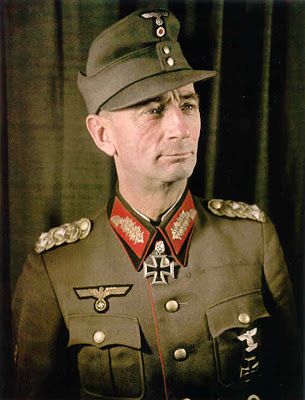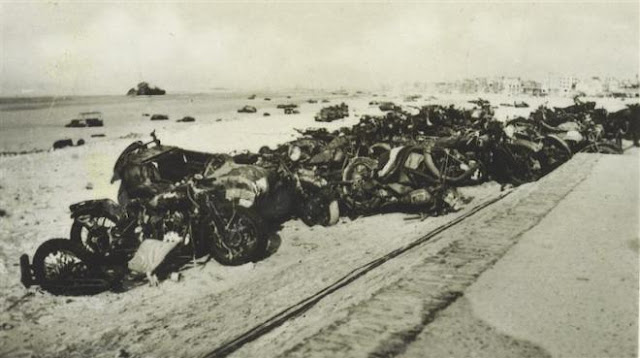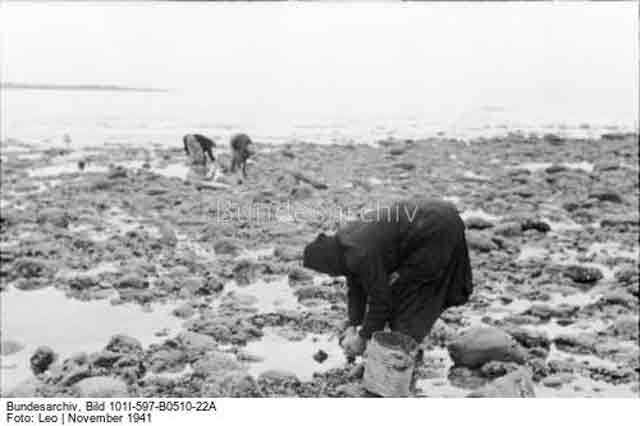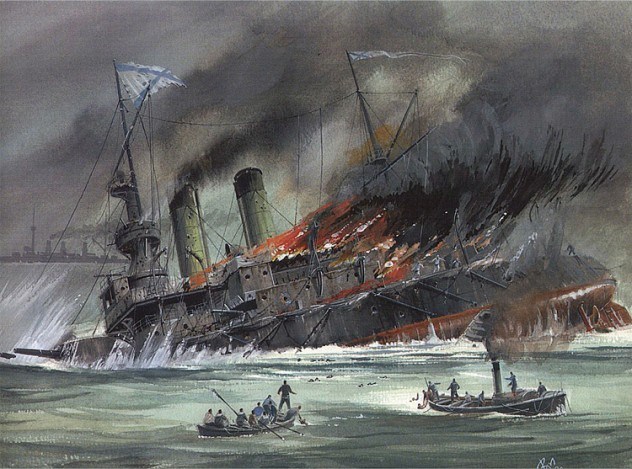Saturday 1 June 1940
 |
| Sundowner at Ramsgate. |
Western Front: The main ground effort remains at Dunkirk on
1 June 1940. The BEF decides to take its men out of the line and leave the port defense to the French. The Wehrmacht breaks through at the canal at Bergues and elsewhere and is held from the beaches with difficulty. The ground defense is maintained by the French while the British board the ships.
There are still BEF forces in action to the south. The 51st Highland Division, the Composite Regiment and 1st Support Group assume the defense against the Germans' Abbeville–St. Valery bridgehead. The 153rd Infantry Brigade also is standing in reserve on the Bresle from Blangy to Senarpont. An improvised British formation, the Beauman Division, holds a 55-mile (89 km) section of the line from Pont St. Pierre, an 11-mile section southeast of Rouen to Dieppe, and 55 miles of the Andelle–Béthune line.
General Georges continues to plan a major effort on 4 June.
Dunkirk: The weather clears up by the morning, which is bad news for Operation Dynamo. While 64,429 troops are evacuated (47,081 Allied troops embark from Dunkirk harbour and 17,348 from the beaches), which is just under the peak total for 31 May, Allied shipping losses mount. The Allies lose four destroyers, a large transport ship, and have five other destroyers damaged.
British orders have been to allow only British troops on board. There is only about 25% or less of the BEF left in the beachhead. The French high command expects all these British soldiers to be routed back to Cherbourg. So far, that is not happening, but it is early. The British are leaving almost all their equipment behind, so they would have little to fight with anyway.
Numerous large vessels such as Channel ferries are damaged by air attack. Conditions are so bad that, after dark, the Admiralty takes the difficult decision to abandon evacuation during daylight hours. Soldiers are frustrated by the incessant Luftwaffe attacks and take potshots at the passing planes with their rifles.
Charles Lightoller's 61-foot yacht Sundowner, requisitioned by the Admiralty, leaves the Port of Ramsgate at 10:00 in the company of five other boats. They spot the motor cruiser Westerly, which has broken down and is on fire. When he arrives at Dunkirk, Lightoller realizes that the piers are too high, so he moves next to destroyer HMS Worcester and takes on passengers from it. He squeezes a total of 75 men below deck and 55 topside. Lightoller then returns to Ramsgate with his 130 men, dodging Luftwaffe attacks on the way. After depositing the soldiers, Sundowner is prevented from returning to Dunkirk because daylight operations from slower vessels have been banned. Sundowner is retained by the Admiralty for other operations as a coastal patrol boat.
European Air Operations: The RAF is occupied over Dunkirk. It launches 8 large aerial patrols that provide excellent cover, but the Luftwaffe has success in between them. It also sends 56 planes in ground attacks against the encroaching German ground forces during the day, and 16 against them during the night.
The Luftwaffe is not just active over the evacuation area, but also is implementing a strategic bombing effort against France. German planes bomb the Lyons-Marseilles railway line that is the main north-south route and also sink the 20,000-ton British passenger liner Orford in Marseilles. Cities all along the Rhône valley are raided, along with Marseilles and Lyon. Altogether, 46 people perish and over 100 are injured.
The RAF also launches raids against Dutch harbors being used by German surface raiders.
During the night, the RAF sends 65 bombers against targets in Germany.
Douglas Bader scores his first victory near Dunkirk.
Battle of the Atlantic: U-58 (Kapitänleutnant Herbert Kuppisch) torpedoes and sinks 8,401 boom defense vessel HMS Astronomer 30 miles southeast of Wick, Scotland. There are 101 survivors, picked up by nearby trawlers, and 4 crew perish.
U-37 (Kapitänleutnant Victor Oehrn) torpedoes and sinks 950 ton Greek freighter Ioanna 120 miles west of Cape Finisterre, Spain. Everybody survives, making land at Vigo, Spain.
At Dunkirk, the Allies lose French destroyer Foudroyant (19 killed) and British destroyers HMS Keith (36 killed), Basilisk (9 killed) and Havant (8 killed). British destroyers HMS Ivanhoe, Venomous, Vimy, Vivacious, and Whitehall and sloops Bideford and Kingfisher are damaged. Minesweeper HMS Skipjack (full of troops, most drown, nobody knows how many), gunboat HMS Mosquito, and transport Scotia (200-300 troops and all 32 crew killed) also are sunk, while smaller British ships (Brighton Queen) and various other smaller vessels go down, both from the Luftwaffe attacks and German S-boats (fast boats) operating out of Dutch harbors.
Convoy OA 159 departs from Southend, Convoy OB 159 departs from Liverpool.
U-101 (Kapitänleutnant Harro von Klot-Heydenfeldt) becomes operational.
 |
| General Dietl. |
Norway: While the British and French have been planning Operation Alphabet, the evacuation of their forces from Norway, for some time, they only tell the remaining Norwegian troops today (British ambassador to Norway, Sir Cecil Dormer, informs King Haakon VII). The Allied evacuations are intended to be a gradual process but a complete operation, with no troops left anywhere in the country. The Norwegians have no real alternatives and continue attacking the German forces despite the ephemeral nature of any successes in the long run. The King and government consider whether to leave the country.
The Germans, of course, do not know any of this, and General Dietl continues his desperate defense near the Swedish border. He has a scattering of units, including elements of German 3rd Mountain Division, naval troops, and the reinforcements which he continues to receive by air and rail. The 2d Mountain Division, coming to Dietl's rescue, enters Bodo, just evacuated by the British.
Anglo/Italian Relations: The Italians break off negotiations for a new contraband agreement.
German Military: General Guderian, who has been leading XIX Corps with great success since the beginning of the war, receives the honor of his own Panzer Group - Panzer Group Guderian.
Soviet Military: General Zhukov, having returned from the Far East, where he led the successful defense at Khalkin Gol, takes command of the Kyiv Special Military District.
British Military: General Ironside, in charge of the Home Forces, considers a proposal by General Wingate to form "special night squads" for operations against German sabotage within England.
US Military: The Navy concludes a Minor Landing and Base Defense Exercise on San Clemente Island.
US Government: Undersecretary of State Sumner Welles responds to Ambassador Wilson in Uruguay that the government will see "if some way can be found by which at least three or four heavy cruisers and a reasonable number of destroyers can be kept on the East Coast [of South America] this summer." Heavy cruiser Quincy (CA 39) already is en route to Rio de Janeiro and then Montevideo, and Welles tells ambassador to Brazil Jefferson Caffery that this is "to furnish a reminder of the strength and the range of action of the armed forces of the United States."
British Government: Sir Samuel arrives in Madrid to take up his post as ambassador to Spain.
Kenya: Gold Coast 4th Infantry Brigade arrives by sea.
China: At the Battle of Tsaoyang-Ichang, the Japanese 11th Army captures Hsiangyang.
Future History: René Auberjonois is born in New York City. He becomes famous in the '70s and '80s as an actor and singer.
Charles Lightoller's yacht Sundowner remained under Admiralty control throughout the war, serving on the River Blackwater and River Clyde, until being returned to the family in 1946. After additional use by the Lightollers and subsequent owners, Sundowner ultimately was purchased by the East Kent Maritime Trust in the late 1980s and restored. It remains operational and takes part in occasional celebrations of Operation Dynamo, including as recently as June 2012.
 |
| A heap of British motorcycles abandoned at Dunkirk, June 1940. |
May 1940
May 1, 1940: British Leave ÅndalsnesMay 2, 1940: British Depart NamsosMay 3, 1940: Many Norwegians SurrenderingMay 4, 1940: Bader ReturnsMay 5, 1940: HMS Seal SurvivesMay 6, 1940: Allies Focus on NarvikMay 7, 1940: In The Name of God, Go!May 8, 1940: Exit ChamberlainMay 9, 1940: Enter ChurchillMay 10, 1940: Fall GelbMay 11, 1940: Eben Emael SurrendersMay 12, 1940: Germans at SedanMay 13, 1940: Rommel at WorkMay 14, 1940: German Breakout in FranceMay 15, 1940: Holland SurrendersMay 16, 1940: Dash to the ChannelMay 17, 1940: Germans Take BrusselsMay 18, 1940: Germans Take AntwerpMay 19, 1940: Failed French CounterattackMay 20, 1940: Panzers on the CoastMay 21, 1940: Battle of ArrasMay 22, 1940: Attacking Channel PortsMay 23, 1940: British Evacuate BoulogneMay 24, 1940: Hitler's Stop OrderMay 25, 1940: Belgian Defenses CreakingMay 26, 1940: Operation DynamoMay 27, 1940: King Leopold Surrenders May 28, 1940: The Allies Take NarvikMay 29, 1940: Lille FallsMay 30, 1940: Operation FishMay 31, 1940: Peak Day for DynamoJune 1940 June 1, 1940: Devastation at DunkirkJune 2, 1940: Hitler Visits FranceJune 3, 1940: Operation PaulaJune 4, 1940: We Shall FightJune 5, 1940: Fall RotJune 6, 1940: Weygand Line CrumblingJune 7, 1940: British Evacuating NarvikJune 8, 1940: Operation JunoJune 9, 1940: Norway CapitulatesJune 10, 1940: Mussolini Throws DownJune 11, 1940: Paris an Open CityJune 12, 1940: Rommel at St. ValeryJune 13, 1940: France Goes AloneJune 14, 1940: Paris FallsJune 15, 1940: Soviets Scoop Up LithuaniaJune 16, 1940: Enter PétainJune 17, 1940: The Lancastria SinksJune 18, 1940: A Day of LeadersJune 19, 1940: U-boats Run WildJune 20, 1940: Pétain WiltsJune 21, 1940: Hitler's Happiest DayJune 22, 1940: France Is DoneJune 23, 1940: Hitler in ParisJune 24, 1940: Six Million JewsJune 25, 1940: German CelebrationsJune 26, 1940: USSR Being BelligerentJune 27, 1940: Malta in PerilJune 28, 1940: Channel Islands BombedJune 29, 1940: Gandhi Insists on IndependenceJune 30, 1940: Channel Islands Occupied2020

















